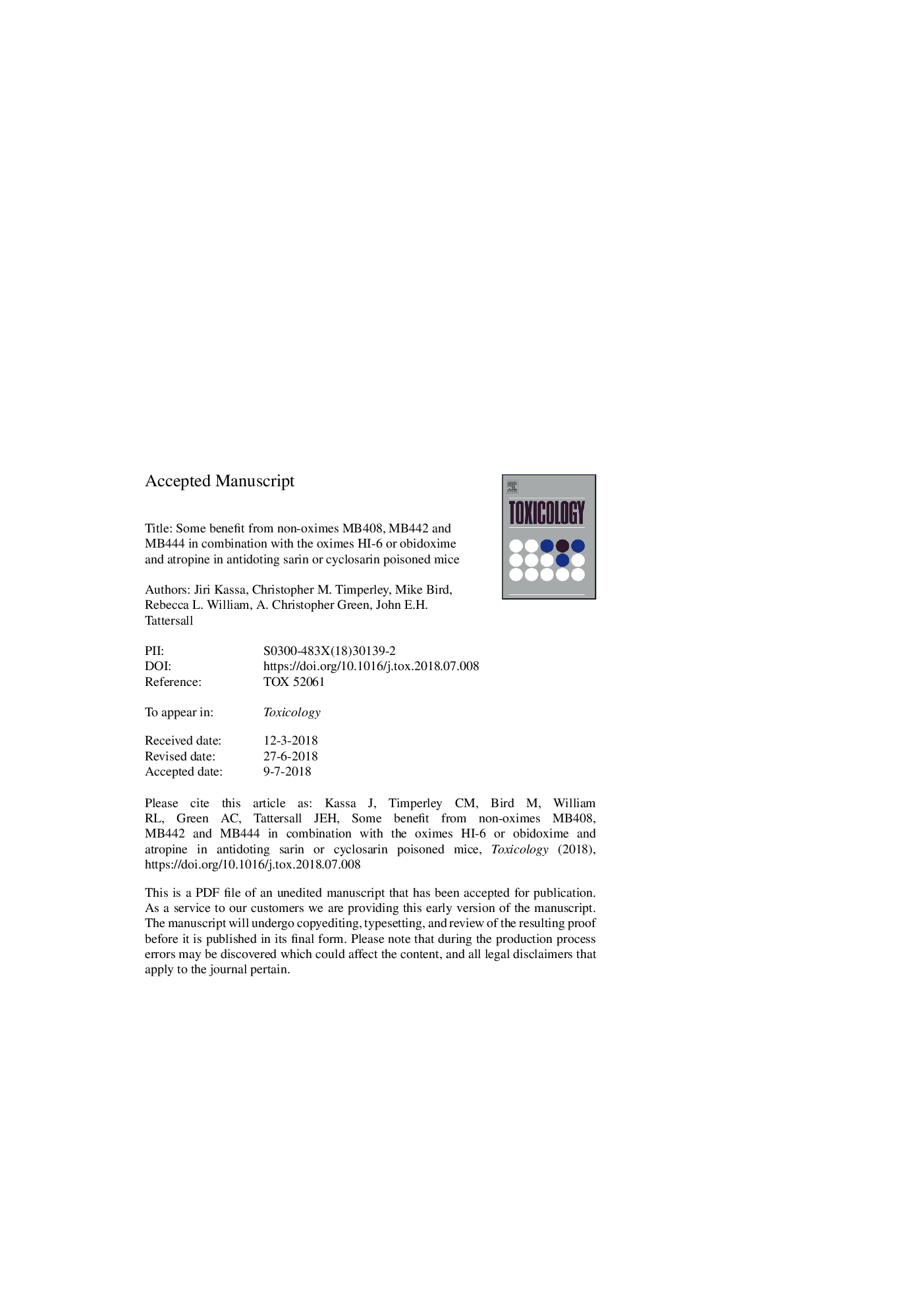| Article ID | Journal | Published Year | Pages | File Type |
|---|---|---|---|---|
| 8552721 | Toxicology | 2018 | 22 Pages |
Abstract
The effect of three newly developed bispyridinium non-oxime compounds (MB408, MB442, and MB444) on the therapeutic efficacy of a standard antidotal treatment (atropine in combination with the oxime HI-6 or obidoxime) of acute poisoning by two nerve agents (sarin and cyclosarin) in mice was studied. The therapeutic efficacy of atropine in combination with an oxime with or without one of the bispyridinium non-oximes was evaluated by determination of the 24â¯h LD50 values of the nerve agents studied and by measurement of the survival time after supralethal poisoning. Addition of all tested non-oximes increased the therapeutic efficacy of atropine in combination with an oxime against sarin poisoning; however, the differences were not significant. The non-oximes also positively influenced the number of surviving mice 6â¯h after supralethal poisoning with sarin. In the case of cyclosarin, they were also slightly beneficial in the treatment of acute poisoning. The higher dose of MB444 was able to significantly increase the therapeutic efficacy of standard antidotal treatment of poisoning with cyclosarin. The benefit of each bispyridinium non-oxime compound itself was obviously dose-dependent. In summary, the addition of MB compounds to the standard antidotal treatment of acute nerve agent poisoning was beneficial for the antidotal treatment of sarin or cyclosarin poisoning, although their benefit at 24â¯h after poisoning was not significant, with the exception of the higher dose of MB444 against cyclosarin.
Keywords
Related Topics
Life Sciences
Environmental Science
Health, Toxicology and Mutagenesis
Authors
Jiri Kassa, Christopher M. Timperley, Mike Bird, Rebecca L. Williams, A. Christopher Green, John E.H. Tattersall,
